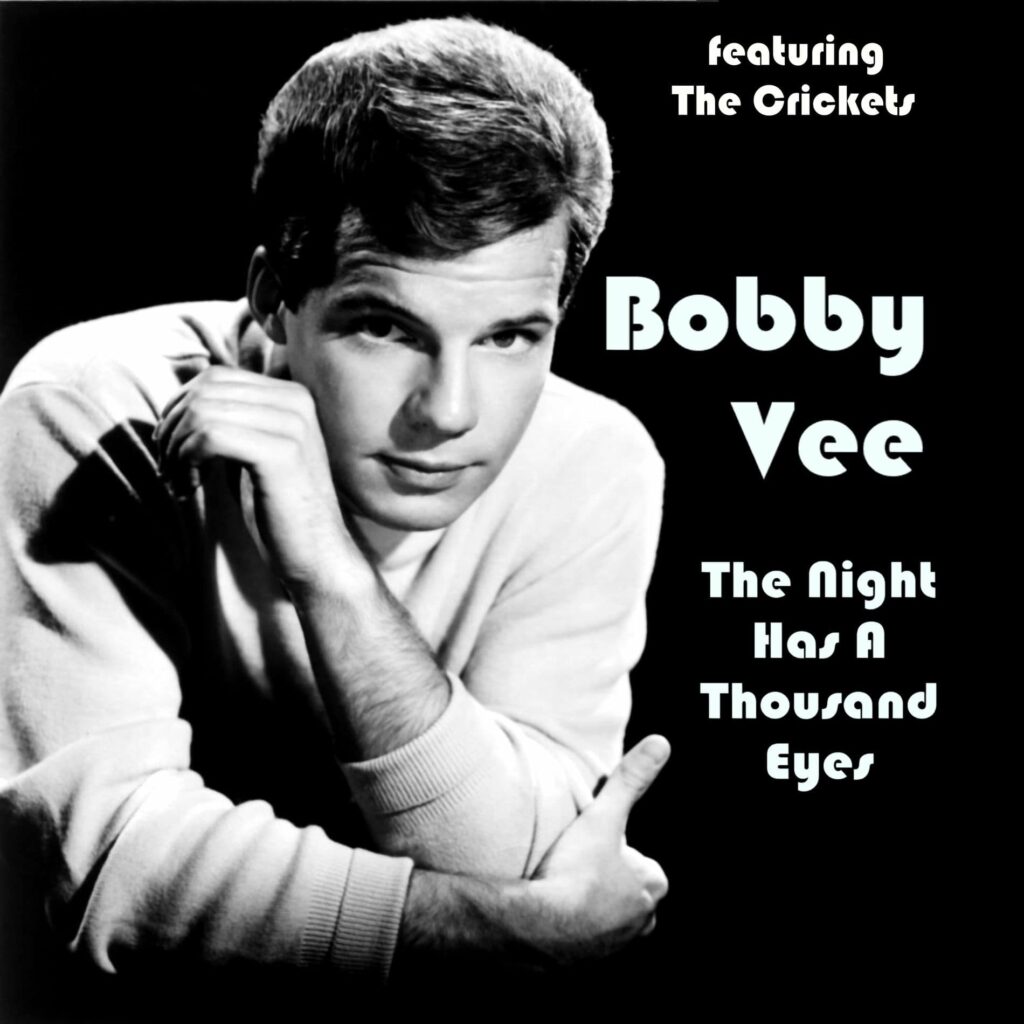
When Love’s Light Shines Through the Darkest Night: Bobby Vee’s “The Night Has A Thousand Eyes”
There are certain songs that, when they drift through the air, instantly conjure images of a specific era – the innocence, the burgeoning romance, the distinctive sound of an evolving musical landscape. For many who came of age in the early 1960s, Bobby Vee’s “The Night Has A Thousand Eyes” is precisely one such timeless treasure. This isn’t just a tune; it’s a whisper of young love, a gentle warning, and a melody that dances with the hopeful spirit of a bygone time. Released in late 1962, this gem from his album The Night Has A Thousand Eyes quickly charmed its way into the hearts of listeners, peaking at an impressive No. 3 on the Billboard Hot 100 in early 1963. Its success cemented Bobby Vee’s status as a leading teen idol of the era, showcasing his knack for delivering catchy, emotionally resonant pop.
Cast your mind back, if you will, to those days. The early sixties were a fascinating crossroads in popular music. Rock and roll was still evolving, pop sensibilities were refining, and vocalists like Bobby Vee were masters at crafting songs that were both wholesome and undeniably captivating. “The Night Has A Thousand Eyes” benefited from the collaborative genius of its songwriters: Ben Weisman, Dorothy Wayne, and Marilyn Garrett. While not a direct adaptation of the famous poem by Francis William Bourdillon, the song cleverly borrows its evocative central metaphor, weaving it into a narrative of watchful love. It’s a testament to the era’s songwriting craft, where simple yet profound ideas were given melodious wings.
The core meaning of “The Night Has A Thousand Eyes” is a beautifully understated expression of constant, all-encompassing love and watchful affection. The lyrics use the poetic imagery of the sun, the moon, and the stars as eternal observers, symbolizing that the singer’s love is always present, always watching over the beloved, even when they are apart. “The night has a thousand eyes,” he sings, “and the day but one; yet the light of the bright world dies with the dying sun.” This sets up the idea that even in darkness, love’s light persists. It’s a sweet, reassuring sentiment, portraying love not as possessive, but as a protective, ever-present force. For older listeners, it might evoke memories of early crushes, the innocent intensity of first loves, or the comforting thought of someone always holding you in their thoughts, even from afar. It speaks to a time when declarations of devotion were often more subtle, yet no less profound.
Bobby Vee’s vocal performance on “The Night Has A Thousand Eyes” is a masterclass in understated charm. His voice, smooth and earnest, perfectly captures the sincerity of the lyrics. There’s a youthful sweetness to his delivery, but also a maturity in his ability to convey deep emotion without resorting to histrionics. He doesn’t belt out the words; he croons them, inviting the listener into the intimate world of the song. This gentle approach, combined with the song’s memorable melody and sophisticated arrangement, made it irresistible. The instrumentation, typical of early 60s pop, features a light rhythmic drive, shimmering strings, and a prominent piano, all contributing to that distinctive, slightly melancholic yet undeniably romantic atmosphere.
“The Night Has A Thousand Eyes” remains a beloved staple on oldies radio stations, a testament to its enduring appeal and its ability to transport listeners back to a more innocent time. It’s more than just a nostalgic trip; it’s a reminder of the timeless power of a well-crafted song to articulate universal human emotions – in this case, the quiet, persistent beauty of a love that watches over you, like the stars themselves. For those of us who recall “Teen Idol” acts of that time, Bobby Vee stood out, not just for his boyish good looks, but for a genuine musicality that allowed songs like this to transcend fleeting trends and become cherished memories.